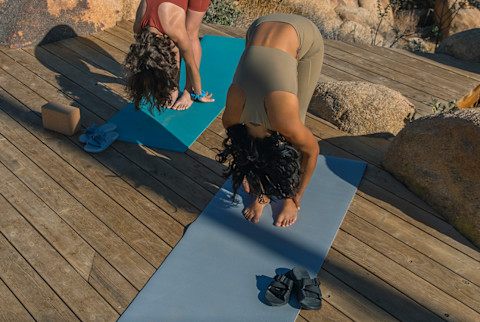3 Science-Backed Exercises That Could Transform Your Sleep, Study Finds

If you’ve ever stared at the ceiling at 2 a.m., counting down the hours until your alarm, you know how frustrating insomnia can be. While sleeping pills and therapy can help, they’re not always the easiest or safest long-term fixes.
But now, a large new analysis suggests a refreshingly accessible alternative: certain forms of exercise may rival medication and therapy when it comes to improving sleep.
The findings highlight that gentle, intentional movement, like yoga, Tai Chi, or even a brisk walk, can meaningfully boost total sleep time, help you fall asleep faster, and keep you asleep longer.
In fact, one practice in particular emerged as a standout, offering benefits that last for years after you start.
The standout sleep boosters
Researchers analyzed over 20 clinical trials, testing different exercise programs, ranging from yoga and Tai Chi to walking, jogging, and strength training, against usual care or lifestyle changes.
The study found that several forms of exercise delivered impressive benefits, especially yoga, Tai Chi, and walking or jogging.
Yoga was linked to nearly two extra hours of total sleep time, improved sleep efficiency by almost 15%, and reduced the time it took to fall asleep by about 30 minutes. People also spent less time awake after initially drifting off.
Walking or jogging excelled at reducing overall insomnia severity, lowering insomnia severity scores by nearly 10 points, enough to make a meaningful difference in daytime energy, mood, and concentration.
Tai Chi was the star performer. This slow, meditative martial art improved every sleep outcome measured, from quality to duration. It added over 50 minutes of sleep per night, shortened sleep latency by about 25 minutes, and kept people from waking up as often. Even more impressive, these benefits persisted for up to two years after starting the practice.
The science behind the results
The researchers point to multiple, overlapping mechanisms:
- Yoga emphasizes body awareness, breath control, and mindful focus, which can reduce anxiety and calm the overactive brain activity that often delays sleep.
- Tai Chi not only relaxes muscles but also activates the parasympathetic (“rest and digest”) nervous system, lowering the physiological hyperarousal common in insomnia. Long-term, it may reduce inflammation, boost brain-derived neurotrophic factor, and support healthy circadian rhythms.
- Walking or jogging helps by increasing energy expenditure, lowering stress hormones like cortisol, boosting melatonin production, and encouraging deeper stages of sleep.
Optimize your sleep
If you’re struggling with insomnia, you don’t necessarily need to overhaul your entire fitness routine. This study suggests that the type of exercise matters more than the sheer amount when it comes to sleep improvements.
- If your main issue is waking up often during the night, consider adding yoga or Tai Chi.
- If you struggle most with daytime fatigue or brain fog, walking or jogging might help the most.
- For a combination of long-term and short-term benefits, Tai Chi may be your best bet.
The takeaway
While no single approach works for everyone, this research makes one thing clear: gentle, accessible forms of exercise can be powerful sleep medicine.
Whether it’s rolling out a yoga mat, taking a slow Tai Chi class in the park, or adding a few brisk evening walks to your week, you’re not just moving your body—you’re training it to rest.
